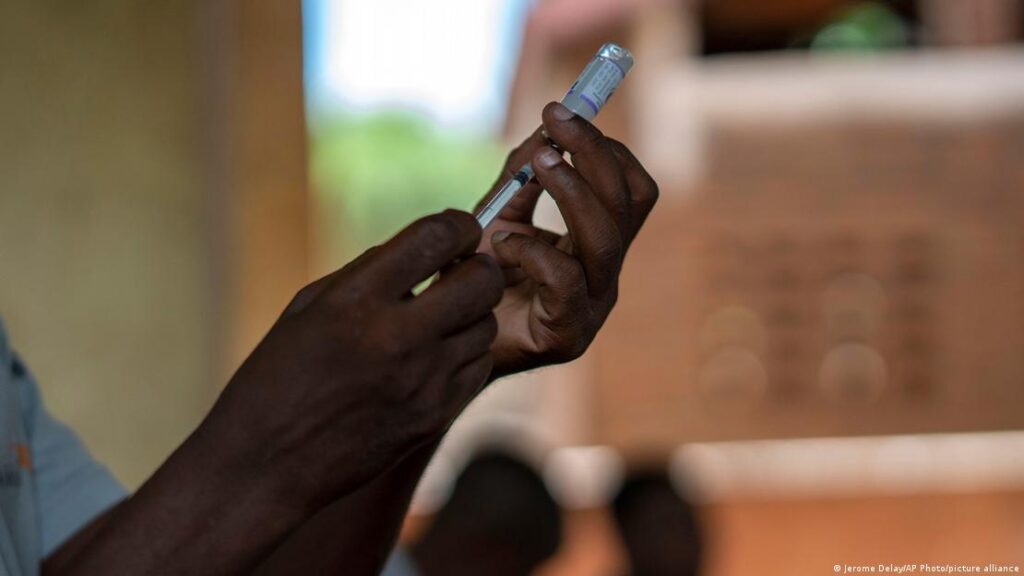Researchers with the Institute for Global Health and Infectious Diseases (IGHID) through IDEEL (the Infectious Disease Epidemiology and Ecology Lab), have detected new strains of malaria-causing parasites in Ethiopia that are both resistant to current treatments and escape detection by common diagnostic tests.

Jonathan Parr, MD, MPH, IGHID member and assistant professor of medicine in infectious diseases, reports that a new genomic surveillance study, conducted with Jeff Bailey, MD, PhD, associate professor of translational research at Brown University and colleagues at the Ethiopian Public Health Institute, reveals mutations in malaria-causing parasites that will complicate efforts to eradicate the disease in Africa. IGHID Associate Director Jon Juliano, MD, MSPH, professor of medicine and epidemiology, contributed to the study, as well as post-doctoral fellow Ashenafi Assefa, PhD.
The authors detailed their findings in Nature Microbiology. Although research had already shown drug resistant strains of the parasite that causes malaria in Uganda, Tanzania and Rwanda, and malaria parasites with mutations allowing them to escape detection by diagnostic tests in the Horn of Africa, spreading independently of one another, the study is the first to confirm the prevalence of this type of double-resistant malaria strain. This finding was recently corroborated in a study from Eritrea published in the New England Journal of Medicine.
“We know that parasites capable of escaping diagnosis are well-established across this region of Africa, but we are only beginning to understand the impacts of new drug-resistant strains,” said Parr. “Our work depends upon strong partnerships in Ethiopia. Highly collaborative approaches will be critical to addressing the threat of these dangerous parasite strains.”
The standard method to diagnose malaria in Africa is through rapid diagnostic tests that detect specific parasite proteins in the blood that are highly expressed. The tests can confirm malaria even if the patient is asymptomatic. The parasites lacking the genes for these proteins have evolved to be invisible to the tests.

The first-line malaria treatment recommended by the World Health Organization is a combination therapy involving artemisinin-based drug compounds, which are very effective in preventing death and reducing transmission. The mutations now detected in Africa provide resistance to artemisinin and result in slowed clearance of infection.
Researchers from IGHID, Brown University and the Ethiopian Public Health Institute, conducted a comparative genomic analysis of malaria-parasite samples with the deleted protein-expressing genes that had been collected across three regions of Ethiopia. Co-supervised by Parr and Bailey, co-director of the Ph.D. program at Brown’s Center for Computational Molecular Biology, and led by postdoctoral fellow Dr. Abebe Fola, the scientists used molecular sequencing to assess the prevalence of mutations that confer resistance to artemisinin. The finding showed that 8.2% of drug-resistant parasites also carried the deletions of the protein-expressing gene that made them detectable by the diagnostic tests.
In Ethiopia, the overall incidence of malaria is low, but the disease remains endemic in 75% of the country, with 65% of the population at risk. More than 5 million episodes of malaria occur each year. The Ethiopian government set a goal for malaria elimination by 2030, and prompt diagnosis and treatment with effective drugs is a cornerstone of the malaria elimination program.
Dr. Assefa says ensuring that research findings benefit the national malaria control and elimination program is most important. “Detecting and monitoring these mutations must be done alongside careful evaluations of antimalarial drug and diagnostic performance, and support the program at this critical point in time, when diagnostic, treatment, and insecticide resistance are threatening progress in Ethiopia.”
Alongside collaborators at Brown and EPHI, Parr and others on the research team are working on building the capacity for malaria genomic surveillance in Ethiopia and other parts of Africa.
The UNC Institute for Global Health and Infectious Diseases (IGHID) is an engine for global health research and pan-university collaboration, transforming health in North Carolina and around the world. IGHID facilitates research excellence while providing opportunities for investigators to nurture emerging scientists through training and service, to advance patient care and practice.
